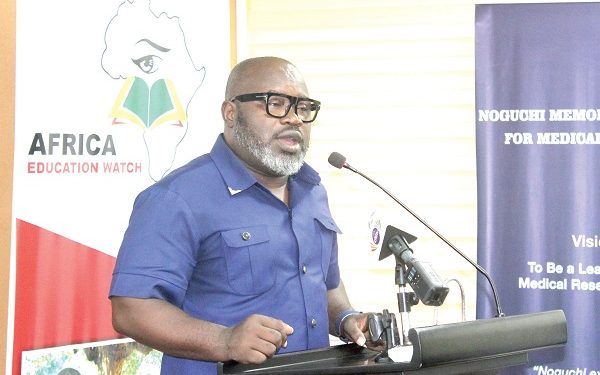The Executive Director of Africa Education Watch, Kofi Asare, has advised parents and students who feel unfairly treated under the new hairstyle directive for second-cycle institutions to pursue legal redress through the courts.
His comments follow recent directives issued by the Minister for Education, Hon. Haruna Iddrisu, tasking the Ghana Education Service (GES) and heads of senior high schools to take full responsibility for enforcing standards of conduct, grooming, and discipline among students.
Speaking at the 75th Anniversary Celebration of Mawuli Senior High School, the Minister defended hairstyle restrictions in schools, noting that such measures were not intended to stifle personal expression but to maintain discipline, uniformity, and hygiene within educational institutions.
“Schools are not beauty contests,” Mr. Iddrisu said, stressing that the focus must remain on training disciplined and responsible citizens.
However, in an interview on Channel One Newsroom with Charles Owusu Kumi on Sunday, October 26, Kofi Asare said that while promoting discipline is crucial, students’ fundamental rights must not be infringed upon.
“It’s not always about indiscipline or discipline. I align with the law, and I encourage anyone who feels unfairly treated to engage the law. Society grows, and so should the law grow,” Kofi Asare.
Mr Asare argued that the implementation of any directive affecting personal appearance must be consistent with constitutional guarantees of equality, freedom, and human dignity.
He cited the landmark 2021 case of Tyrone Iras Marhguy, a Rastafarian student who was initially denied admission to Achimota School due to his dreadlocks but later won his case in court.
“Marhguy argued that maintaining his Rasta was linked to his belief in Rastafarianism. Denying him admission meant violating his right to religion and culture. The court agreed, saying that while schools can set grooming rules, they must not contradict constitutional rights.”
Mr Asare recalled.
He added that the Marhguy ruling remains a guiding precedent, reinforcing the need for educational policies to balance discipline with respect for diversity and inclusion.
“Before the Marhguy case, many believed it was acceptable to deny students admission based on hairstyles. The court clarified the law, and we all aligned with that decision—until a contrary pronouncement is made.”
he explained.
Kofi Asare further stressed that Ghana’s education system must evolve to reflect modern realities while maintaining moral and ethical standards. He said constructive dialogue between policymakers, parents, and civil society is essential to prevent future conflicts over student rights and school regulations.
He concluded that the Ministry of Education’s hairstyle directive must be guided by both legal and human rights principles, ensuring that discipline does not become a pretext for discrimination.
“Education must empower, not marginalise. The law exists to ensure fairness and justice, and that’s what we must uphold,” he affirmed.
Click the link Puretvonline.com | WhatsApp Channel to join the WhatsApp channel
GOT A STORY?
Contact/WhatsApp: +233243201960 or manuelnkansah33@gmail.com

